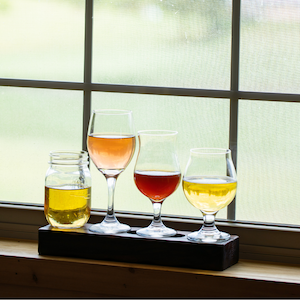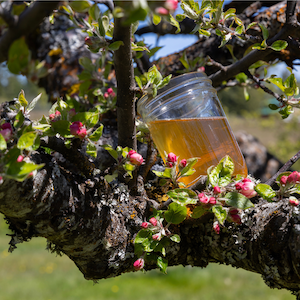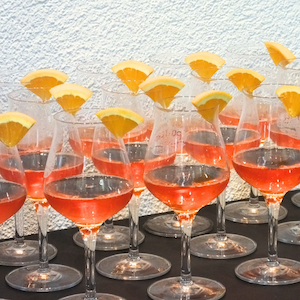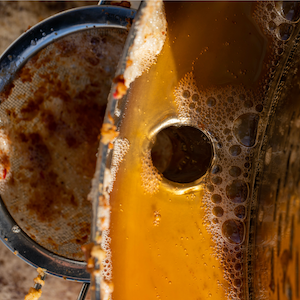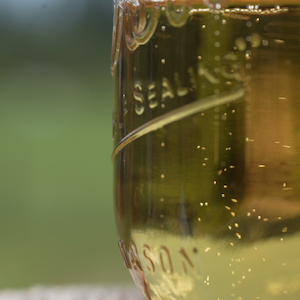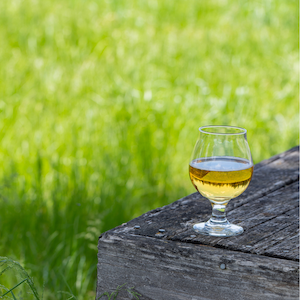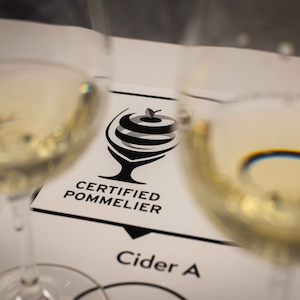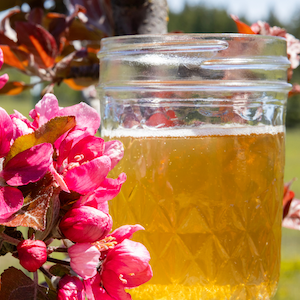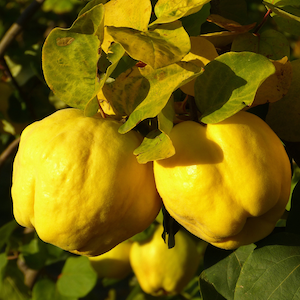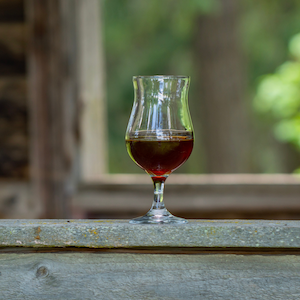Does Cider Need Tannin?
Price: $12
Speakers: Tom Oliver, Kari Williams, Christine Walter, Scott Katsma
Date & Time: Thursday, February 6, 10:30 – 11:45 AM
What is tannin, where does it come from and why it is needed for flavor and balance in cider? What are the challenges to growing tannic cider fruit varietals? How do you best balance the holy trinity of tannin, acidity and sweetness in cider making? And what is the consumer’s view and the benefit to them of tannin? Attendees will gain an appreciation of the integral part that tannins play in quality cider and the importance of this pillar of cidermaking. Sponsored by the Cider Institute of North America.
Porter’s Perfection: West of England to the PNW
Price: $12
Speakers: Adam Wells, Albert Johnson, Autumn Stoscheck, Marcus Robert, Bryan Ulbrich
Date & Time: Thursday, February 6, 2:00 – 3:15 PM
Apple varieties are the engine room of cider’s flavor, and as the global cider revolution grows, so the distinct characteristics of individual varieties are becoming ever more treasured and celebrated. Classic bittersweet and bittersharp varieties from the UK are even crossing the Atlantic to find homes in American orchards, and taking on new directions of flavour from region to region. One such apple is the fantastic Somerset bittersharp, Porter’s Perfection. A standout in the orchard for its curious habit of fusing multiple apples together as one, it’s an unusual example of a British variety seemingly more often seen on US labels than in the UK. In this tasting and panel discussion we’ll shine a spotlight on Porter’s Perfection made in both its west English home, and in multiple regions of the USA, discovering both the flavors inherent to this treasured apple variety and the unique inflections of flavor that each country and region brings to the glass.
A Chef’s Guide to Creating Cider Cocktails
Price: $15
Speakers: Chandler Tomayko, Justin Koury
Date & Time: Thursday, February 6, 3:45 – 5:00 PM
In this session you will explore the world of cider cocktails told from a chef’s perspective. Chef and bartender Chandler Tomayko of BevFluence® will take you on a journey from cider to cocktail and everything in between. Learn how to craft delicious cocktails using both high tannin and low tannin ciders, paired with seasonal ingredients and culinary techniques that elevate traditional drinks into something truly special. Tastings include 2 ciders and 2 cider cocktails made from the featured ciders.
Keeving: Basics and Practical Applications
Price: $12
Speakers: Dave Takush, Dion Stepanski, Yann Gilles, Steve Selin
Date & Time: Thursday, February 6, 3:45 – 5:00 PM
Explore the traditional cidermaking technique of keeving in this focused session. Learn the core principles and practical applications of keeving across various production scales. The panelists will provide insights into their keeving methods, share key techniques, and discuss the impact on cider quality. The session will also feature a tasting of different keeved ciders, allowing attendees to experience the results of this unique process firsthand. Gain valuable knowledge on how to effectively implement keeving in cider production. Sponsored by the Cider Institute of North America.
Brewer’s Yeast in Cider for Unique Flavor & Branding
Price: $12
Speakers: Brian Wing, Andy Diacetis, Jen Curs
Date & Time: Friday, February 7, 10:30 – 11:45 AM
This session will explore how new yeast strains are developed and brought to market. Trials were developed using nine different brewing yeast strains on bulk apple juice. The audience will learn about the analytical results and tasting data from these ciders so they can take home ideas for their own experimentation. There will be three ciders to taste during the session made with brewing yeast strains. Sponsored by the Cider Institute of North America.
Chilean Cider: Honoring Rich Traditions
Price: $12
Speakers: Eli Shanks, Jose Antonio Alcalde, Fabian Lara Mercado, Carlos Martinez, Gicella Saldivia, Rene Galindo
Date & Time: Friday, February 7, 10:30 – 11:45 AM
Chile has a long and storied cidermaking history with 500 years of culture and livelihoods built around cider, and dozens of endemic, true cider apple varieties. A new generation of cidermakers are building off of this tradition and bringing new energy and innovation into the industry, and are coming to CiderCon 2025 to share their ciders and their stories with you. From a multi-generational, Native Chilean family cidery, to the very people responsible for identifying and classifying the distinct and unique Chilean cider apples, to the most envelope-pushing producers of the day, this tasting session will be filled with overlooked history, a reflection of a modern reality for cidermaking in a place unlike anywhere else in the world, and ciders made from apples that have never been grown or even tasted in North America. Don’t miss it.
How to Evaluate Ciders for the Certified Pommelier Exam
Price: $12
Speakers: Jennie Dorsey, Tim Powers, Kate Pinsley
Date & Time: Friday, February 7, 2:00 – 3:15 PM
Participants will practice blindly evaluating two ciders using the ACA’s Structured Sensory Evaluation process guided by Certified Pommelier and Education Operations Director Jennie Dorsey and a panel of Certified Pommeliers. This session will teach you how to objectively assess any cider, empowering you in the cidery and in assisting customers to find a cider they love while also helping you to prepare for the sensory portion of the Certified Pommelier exam.
The Paradigm of Natural Cider Production
Price: $12
Speakers: Haritz Rodriguez, Jasper Smith, Richard Yi
Date & Time: Friday, February 7, 2:00 – 3:15 PM
The definition of natural cider varies depending on how you look at it. In Spain it is regulated by law, which perfectly defines what can be considered natural cider. However, the concept of natural cider goes beyond a style and differs in other places, depending on the philosophy of each cider maker. Biodynamic agriculture, organic agriculture, no addition of sulfites (at any point in the process?), spontaneous fermentation without added yeasts, no stabilization… What’s the paradigm of natural cider? In this debate we want to explore the limits of natural cider and define the paradigm. What is it that all those producers want the consumer/purchaser to understand by the word natural and what is it that the consumer thinks they are purchasing when buying or asking for “natural cider”? Sponsored by the Cider Institute of North America.
Embracing Quince: A Sensory Exploration in Cider
Price: $12
Speakers: Brandon Buza, Rene Galindo Quidel, Adam Wargacki, Maggie Przybylski, Matt Sanford
Date & Time: Friday, February 7, 3:45 – 5:00 PM
The use of quince in cider, as a blended ingredient or as a featured single varietal, has grown in recent years given a passionate fan base. Although quince is known for contributing unique floral aromas, customers, buyers, sommeliers and makers are still learning about this mysterious fruit. The full extent of what it can bring to a cider when done right is little known. In this session, participants will join us for a visual and sensory introduction to this exciting pome, carefully tasting through a flight of quince ciders to arrive at a better understanding of what quince offers to a cider’s aroma, structure and flavor when alone or when interacting with apples.
Apple Mistelles: History, Production and Enjoyment
Price: $15
Speakers: Jennie Dorsey, Yann Gilles, Ambrosia Borowski, Philippe Bishop
Date & Time: Friday, February 7, 3:45 – 5:00 PM
Apple mistelles, a lesser-known yet richly flavorful beverage, have been gaining appreciation for their unique blend of history, craftsmanship, and taste. In this session, participants will delve into the fascinating history of apple mistelles, learning about their production process and the distinct characteristics they offer. Through a guided tasting, you will explore the full range of flavors that mistelles can provide—from sweet and rich to crisp and aromatic—while gaining a deeper understanding of their role in the wider world of apple-based beverages.

